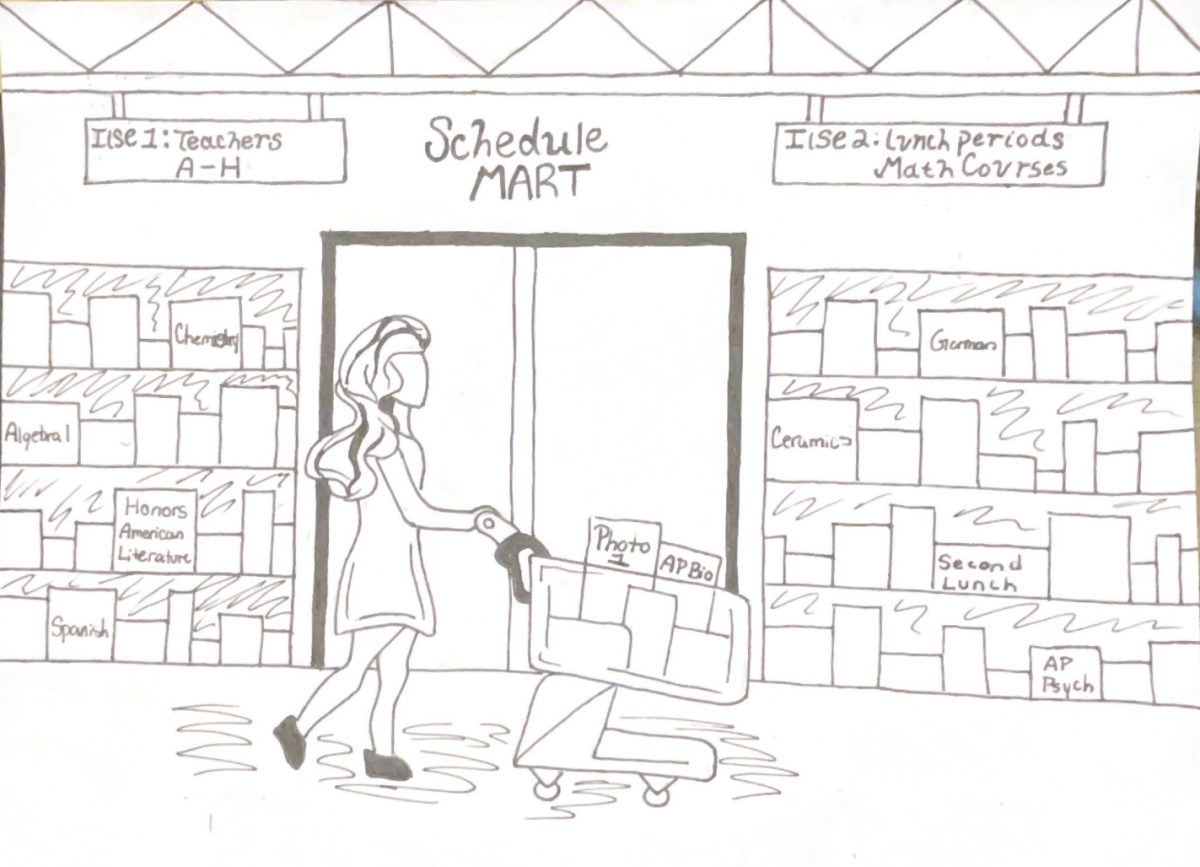A common misconception, a necessity or a tedious limitation: the schedule change policy is one with many proponents and opposers.
According to the student handbook, switching classes will only be approved due to scheduling errors, lacking/failing course requirements or transitioning to more challenging levels. Schedules can not be changed for a different lunch period, teacher, course hour or tutorial change. Although the policy remains the same, student feedback continues to resurface.
For many students, swapping classes can seem like a frustrating experience. Quin Grabowski ’25 said she has made several attempts to switch classes throughout high school in hopes to match her course load to a difficulty best suited for her.
“When you switch into a class, you want it to be as quick as possible so you don’t miss as much material,” Grabowski said. “I know for me it was hard because it took a whole week just to get out of my current class and into a new one. That’s a week I could have had instruction in the new class.”
Many times frustration from schedule changes can result in backlash to the counseling department. Counselor Beth Walsh-Shautske explained the counseling staff isn’t responsible for the barriers around schedule changes. They simply enforce the rules district administrators set.
“If a student is overwhelmed and they bite off more than they could chew, we try to make that a better situation for them,” Walsh-Shautske said. “We will do what we can to try and make a change because we are not heartless people.”
The reason for having scheduling rules is a logical one. Each year, administration notes the number of students interested in different classes. They are then tasked with pairing staff with each course and keeping student numbers at a balance. Preliminary schedule submissions are seriously looked at, and can even determine if a teacher will be forced into part-time work. English teacher, Sandra McCue, said she appreciates how the attentiveness of the system holds students accountable for the choices they’ve made.
“I think (the policy) can seem really harsh to students, especially if they’re unhappy about their schedule, but there is a reason behind the process,” McCue said. “(Administration has) really taken into consideration the teachers’ complaints and concerns about schedule changes. It’s a response to that and I find it to be really thoughtful, even though to students it might not always seem that way.”
On separate occasions, both McCue and Walsh-Shautske share the same regard that students have adapted their understanding to the district’s policy. Over the years, there is said to be less attempts at “teacher-shopping” and more acceptance that schedules can’t change because a student changed their mind.
“Having a system is important for efficiency,” Walsh-Shautske said. “But any sort of efficiency measure doesn’t completely eliminate the need to have a personal connection. That’s where we try to build in those opportunities to hear kids out, even if it doesn’t hit those rules, and we try to meet the need as best we can.”












































































